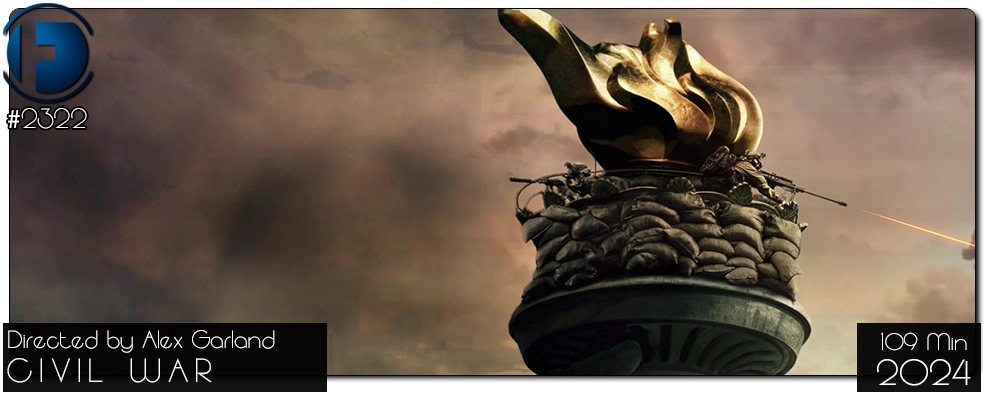Movie Review – Civil War
Principal Cast : Kirsten Dunst, Wagner Moura, Cailee Spaeny, Stephen McKinley Henderson, Nick Offerman, Sonoya Muzuno, Jefferson White, Nelson Lee, Evan Lai Bohai, Jesse Plemons.
Synopsis: A journey across a dystopian future America, following a team of military-embedded journalists as they race against time to reach DC before rebel factions descend upon the White House.
********
Alex Garland’s fascinating dystopian thriller owes so much to Coppola’s Apocalypse Now I’m left thoroughly baffled how it hasn’t been a bigger conversation. Civil War isn’t the action film the trailers promised us, but it is an intriguing, tragic, horrifying opus focusing on the breakdown of American society through the, er… lens of a group of photojournalists covering the titular conflict. Led by a dour turn from an unusually downbeat Kristen Dunst, as well as terrific supporting roles to Wagner Moura and Cailee Spaeny, I have to admit I didn’t quite find this journey downriver as melancholy as Garland probably intended, echoing Joseph Conrad’s “Heart Of Darkness” more subtly than Coppola’s classic anti-war film, delivered with some shocking flourishes and all-too-prescient insight into what makes the United States tick.
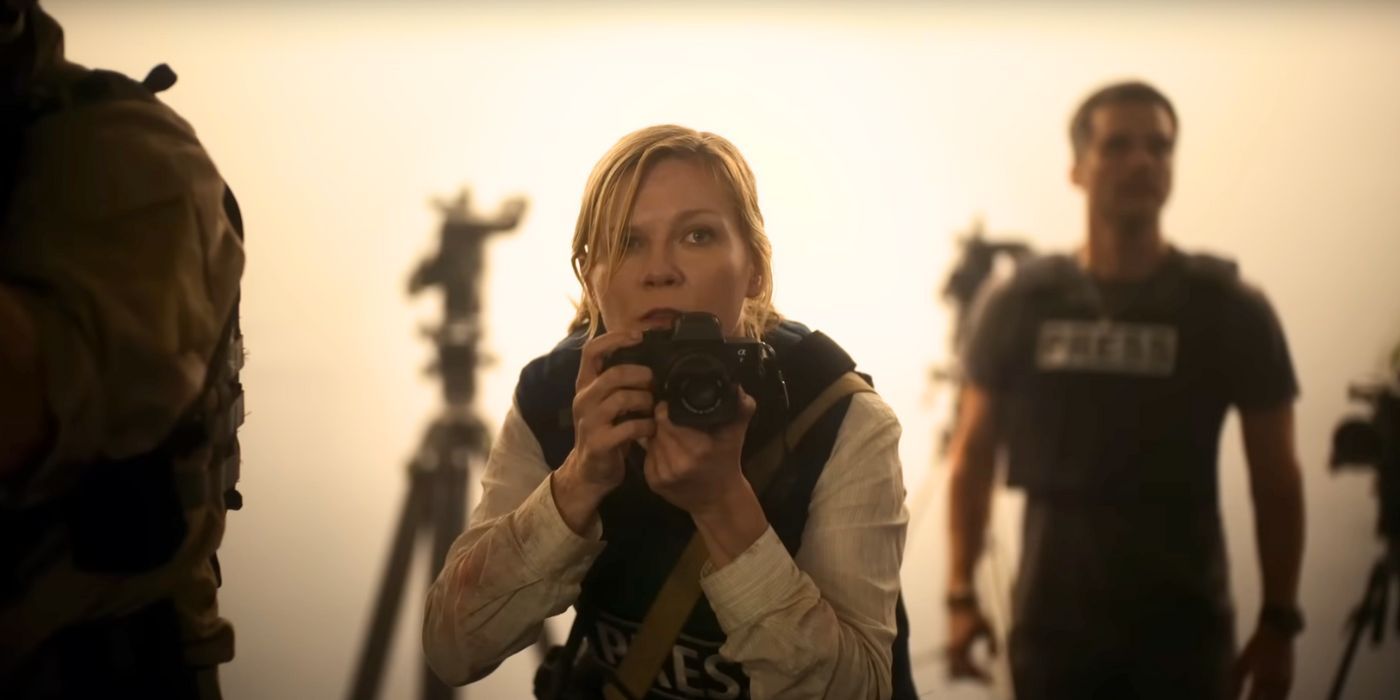
In the near future, a civil war has engulfed the United States, fought between the Federal Government and secessionist movements; despite the President (Nick Offerman) claiming imminent victory, the opposing Western Forces of Texas and California are soon to breach the capital and the White House, ostensibly to take him down. In New York City, war photographer Lee Smith (Dunst) and her journalist colleague Joel (Wagner Moura), together with veteran NYT writer Sammy (Stephen McKinley Henderson) meet to discuss a plan to go and interview the President, hopefully before he is executed; as they depart, they are befriended by young wannabe photographer Jessie Cullen (Cailee Spaeny), who idolises Lee and wants to start a career covering the conflict. As the quartet travel south to Washington DC, they encounter a variety of eerie, cruel, and shocking events that force them to confront the country’s own mortality, the evil that has led to the war, and the insidious nature of mankind to destroy itself for power.
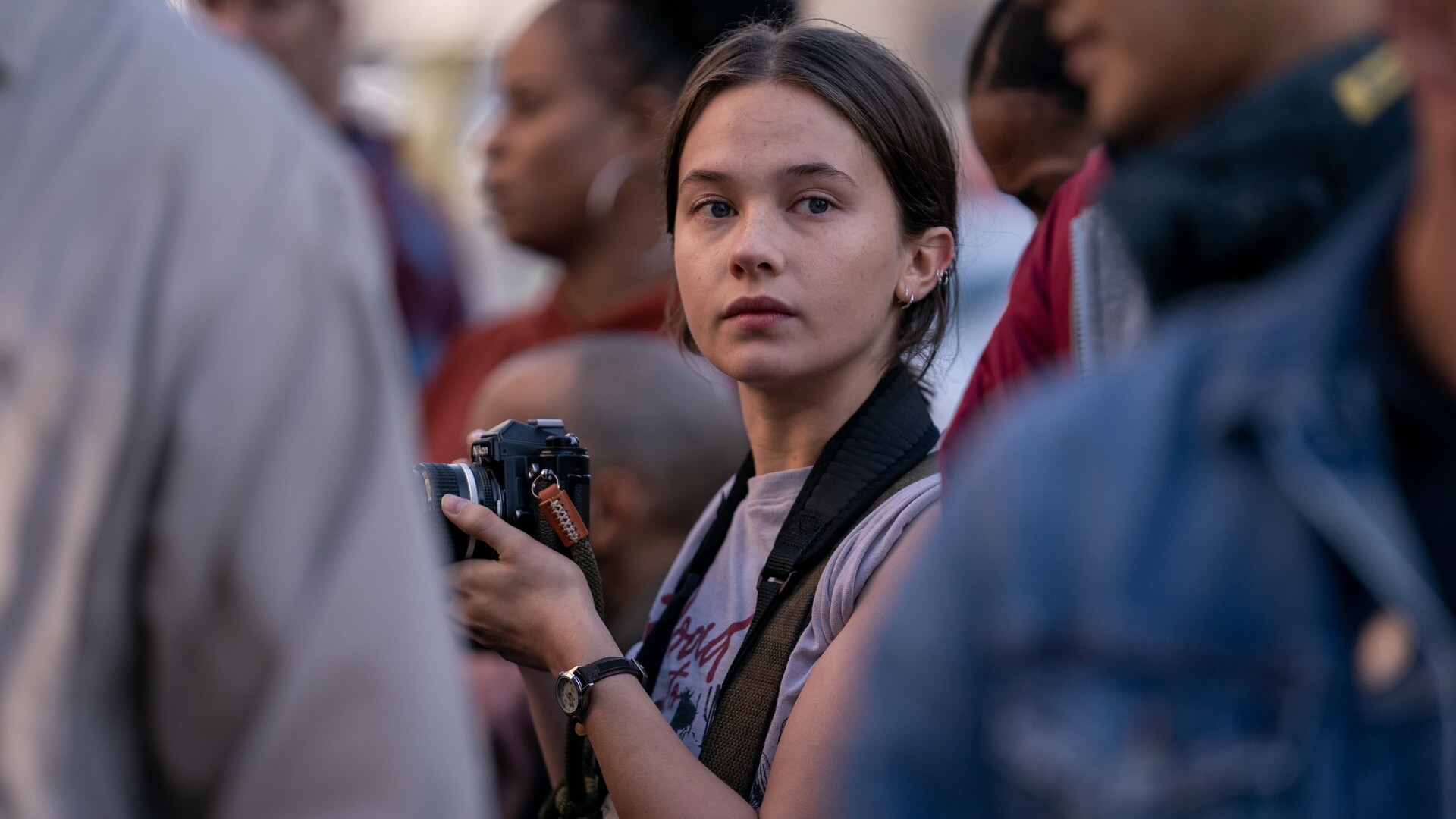
Folks reading this who are yet to see Apocalypse Now and wondering about my earlier comparison should do themselves a favour and seek out Francis Ford Coppola’s astoundingly beautiful war film for themselves, and give it a watch. Most definitely do so before you watch Civil War, because there’s a lot of similar themes between them, despite being continents – and decades – apart. Dunst takes the Martin Sheen character here, playing a PTSD-afflicted, traumatised and broken war photographer who despairs at the things she has seen as America falls apart. The competing sides to the war, neither of which are politicised by Garland’s script ensuring this film isn’t about Democrats of Republicans per se, exist purely as a backdrop to the journey undertaken by Lee and her journalist compatriots – in a white 4WD here, instead of a riverboat – leaving a lot of the film to handle the gradual disintegration of Lee’s emotional state as the principal emotional arc. The film is told in an episodic manner, as the main characters are forced to confront notions of peace, violence, evil and cruelty in their journey, from a duo of looters bound up in an old car wash, to an uncredited Jesse Plemons’ chilling appearance as a militant racist massacring entire towns, through to the industrial onslaught of an attack on Washington itself: what might seem like far-fetched fantasy feels a little too close to the bone in Garland’s film, given the political and social apoplexy inhabiting online discourse these days.
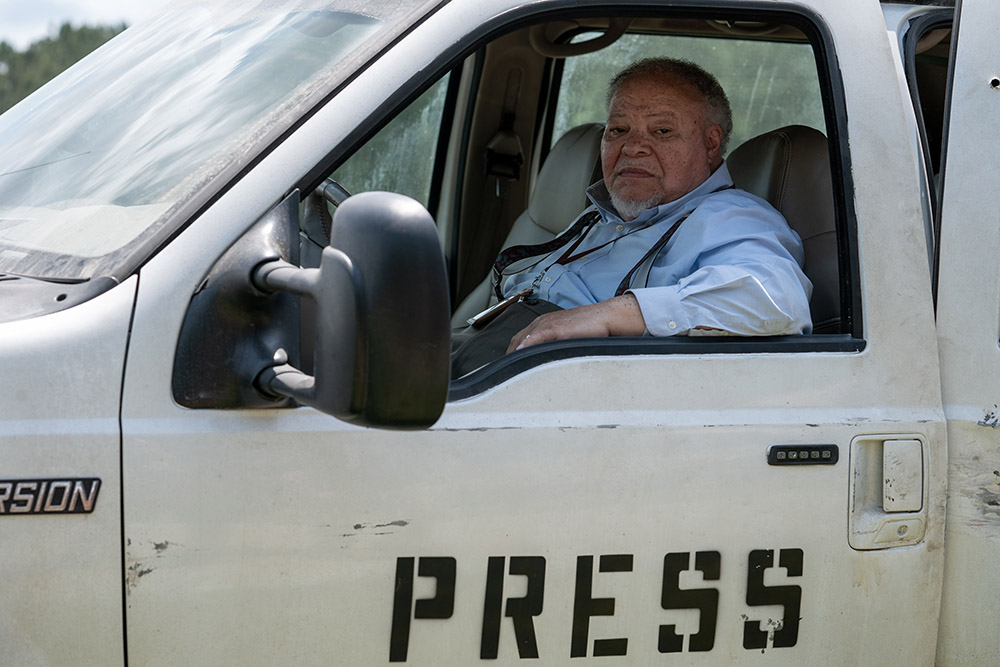
For non-American viewers, the film might not have quite the same unsettling potency as it has had in the United States, mainly because Americans can probably associate more closely to a literal civil war than many others because their country was once gripped by one. That said, there’s still a lot of heart-breaking and mournful imagery in Garland’s film, with his keen eye for substantive visuals (see Ex Machina and Annihilation as other examples) and no matter your point of origin, the emotional connection we have with both Dunsts’ battle-weary photog and Cailee Spaeny’s entirely ignorant war correspondent virgin is still quite strong. I’ll be honest, for me the film worked less on an emotional level for the principal characters – although their respective journeys are quite intriguing, if not somewhat predictable – and more on just how tense Garland makes even the most benign encounter on the road a potentially deadly trap. The fits-and-starts nature of the road trip undertaken by our four heroes, with Stephen McKinley Henderson’s Sammy being the only one with a soul left pretty much, becomes more a story of survival, not so much ruminating on the fall of the USA, which leads me to think perhaps Garland misplaced his copy of Jack London’s famous novel in favour of trying to do his own thing.
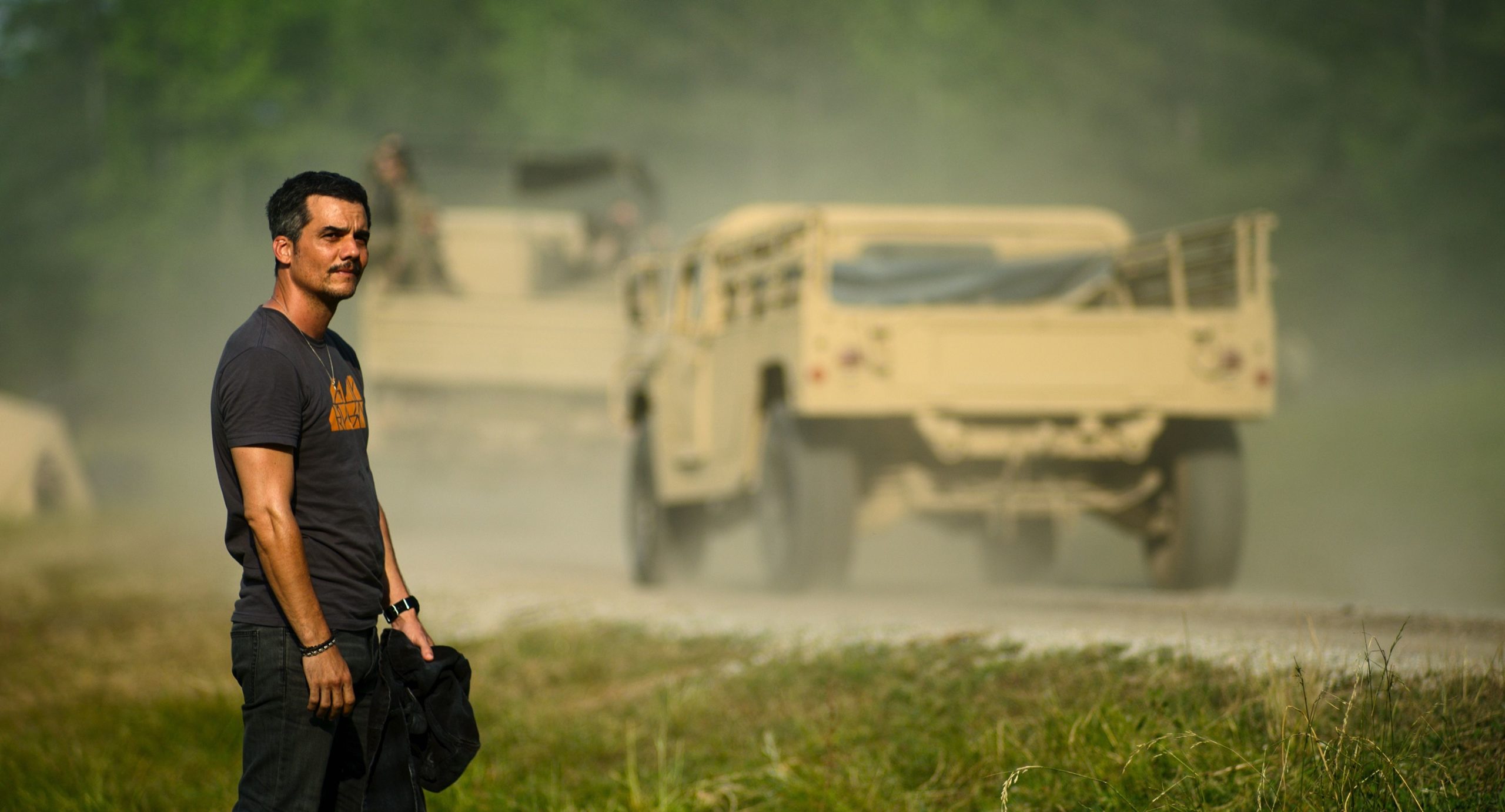
What nearly saves Civil War from being an Apocalypse also-ran is the casting, and several key performances. I mean, there are issues I had with the characters, but the performers deliver exactly what’s asked of them to a degree this film probably works because of them. Dunst’s taciturn take on the beaten Lee Smith is nice but offers little respite from despair, Wagner Moura’s comprehensively “he’s just there” role as Joel feels like there should have been more backstory to him but was cut from the film, and Henderson, as alluded to earlier, becomes the moral soul of the whole thing. Cailee Spaeny’s role as Jessie is clumsily shoehorned in as some kind of precocious, utterly idiotic fangirl of Lee’s who thrusts herself into the fray seemingly without acknowledging the danger she places herself in, and although I get the subtext of the role (perhaps she’s analogous to the junior soldier essayed by Lawrence Fishburne in Apocalypse Now) I found the character too simplistic and dulled by middle-distance staring. Offerman’s work filming as the President (pretty much the Colonel Curtz figurehead here) likely lasted a day, maximum, while a slew of interesting and creepy sidebar characters make for uneasy tension throughout. Jesse Plemons’ much talked-about extended cameo mid-film, for which he has no on-screen credit, is a testament to making a character with limited screen time the most effective thing in the movie. He’s absolutely terrifying, indeed.
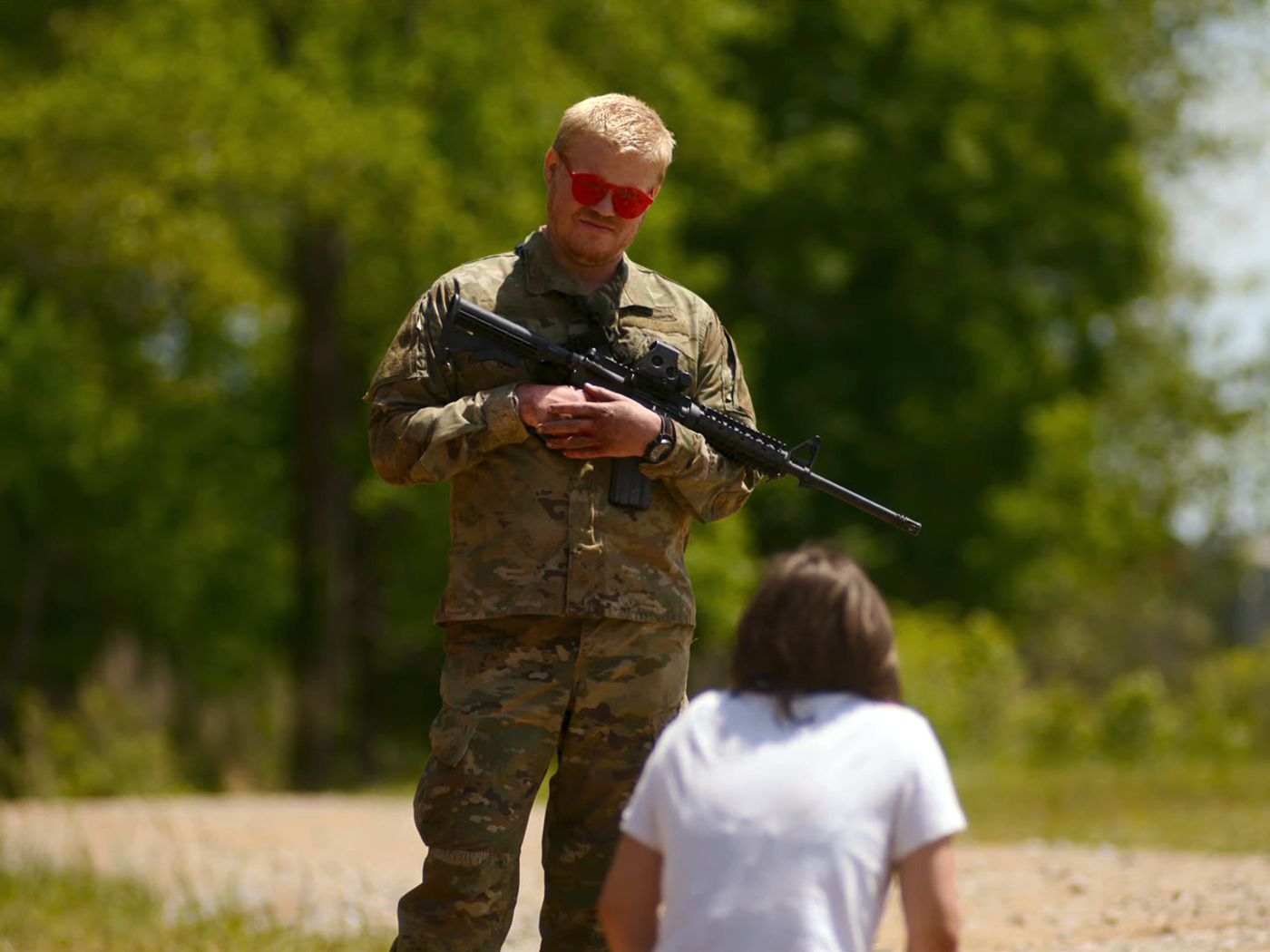
What also led me to compare this film to Coppola’s masterpiece is the continued approach to the film’s style that evokes a 1970’s Vietnam-era brutalism. This isn’t a film where character have some fancy sci-fi iPads and 4K cameras out shooting the war, no sir. This is bloody, dirty, shot-on-film camera anachronism – complete with an at-times dusty cinematography (by Rob Hardy), and an unsubtle needle-drop soundtrack of trippy, esoteric music accompanying Ben Salisbury and Geoff Barrow’s solemn score; look, the only thing missing here aside from copious drugs was a Jim Morrison/Doors track, then it absolutely would have been Apocalypse Now.

There’s combative and deconstructive dialogue about the inhumanity the film’s characters (and we) are witness to on the daily, and it aches with a sense of lost innocence and mournful fatalism, as if this is the route the United States will face in real life were they not to course correct. The pulsating battle sequences are sporadic but contain a deadliness and tragedy to them that sits in the mind long after the credits. And that’s what I think affected me most about this film; the potential for this to occur, and what could be done to stop it. In the cold light of day there’s nothing new or specifically intriguing about the characters in Garland’s film, with Civil War instead relying on iconography and dramatic tension through possible death to propel the narrative. The film’s sense of futility, the inexorable decay of modern America, and the malaise with which everyday people seem ready to slide into ambivalence to the value of human life, is among the more chilling facets to the movie, and although there’s little hope to be found in Civil War’s long death-rattle nihilism, I found the film engaging in areas I didn’t expect. In truth, despite finding it all too similar to another film, and despite what the screed above might seem to indicate, I really did enjoy Civil War. Although I’m doubtful I will need to revisit it again, I can recommend it on the strength of its ideas and sense of fatalism, a contrast to more testosterone-driven fare or action-focused storytelling.

